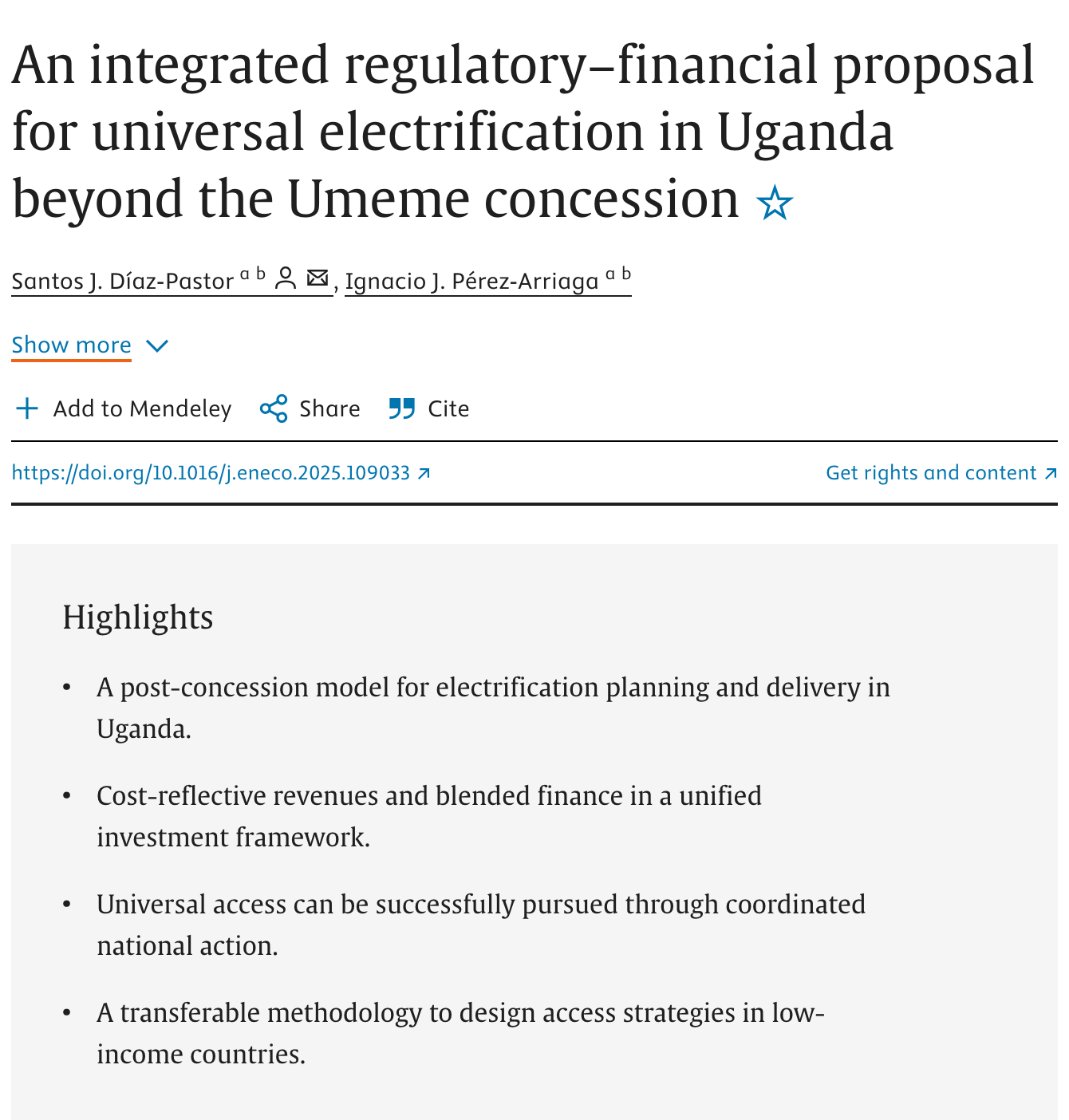DATABASE

An integrated regulatory–financial proposal for universal electrification in Uganda beyond the Umeme concession
completed
Link
www.sciencedirect.com
Abstract
This study proposes a new integrated planning and financing framework to help Uganda achieve universal electricity access after the Umeme concession ends. By linking least-cost electrification planning with cost-reflective tariffs, blended finance, and internal cross-subsidies, the authors model a full financial system using two new entities—Service-Co for distribution operations and Finance-Co for pooling diverse capital sources. Applying the model to Uganda’s national strategy shows that universal access is financially feasible without permanent subsidies, especially if rollout extends to 2040, which sharply reduces annual investment needs and improves investor returns. The approach provides policymakers with a practical, scalable method to design financially robust electrification pathways that treat all grid and off-grid solutions as part of a single unified system.
